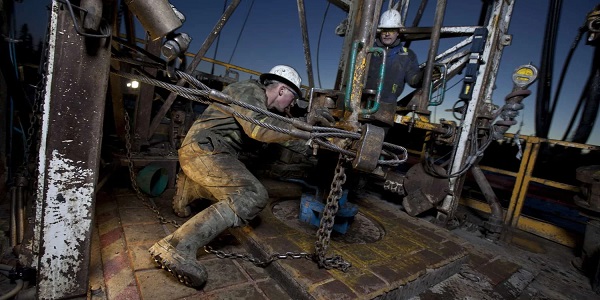Uncategorized
China calls US arrogant and selfish after hacking indictment

BEIJING — China called the U.S. arrogant and selfish on Friday after two Chinese citizens were charged with stealing American trade secrets and other sensitive information on behalf of Beijing’s main intelligence agency.
Foreign Ministry spokeswoman Hua Chunying said “the Chinese government has never participated in or supported anyone in stealing trade secrets in any way.”
She accused the U.S. of undermining the development of other countries in order to defend its own hegemony.
“The U.S. is a world superpower, and it’s quite arrogant and selfish,” she said during a regular press briefing.
The U.S. Justice Department announced Thursday the indictment of Chinese nationals Zhu Hua and Zhang Shilong for allegedly carrying out an extensive cyberespionage campaign against government agencies and major corporations.
Besides the alleged U.S. infiltration, Zhu and Hua are also accused of breaching computers linked to companies in at least 11 other countries, including Japan, the United Kingdom and India.
More than 90
“China’s state-sponsored actors are the most active perpetrators of economic espionage,” FBI Director Chris Wray said in announcing the case. “While we welcome fair competition, we cannot and will not tolerate illegal hacking, stealing or cheating.”
Hua, the Foreign Ministry spokeswoman, said: “They believe that a lie repeated a thousand times will become the truth, but I want to tell them that a lie is still a lie even after it has been repeated ten thousand times.”
In a written statement issued earlier Friday, she said the U.S. was “fabricating facts.”
The whereabouts of Zhu and Zhang are unclear. China does not have an extradition treaty with the U.S.
“There is some
Li said that if Zhu and Zhang travel to other countries that have signed treaties with the U.S., they could be detained for possible extradition, as was the case with Chinese tech executive Meng Wanzhou’s recent arrest in Canada.
The indictment says the pair worked for the Huaying Haitai Science and Technology Development Company in Tianjin and acted in association with the Chinese Ministry of State Security’s bureau in the northeastern port city.
A public company registry says that Huaying Haitai’s work includes the development of computer software, consulting and business related to a variety of technical equipment.
Among the cyberespionage
James Gong, a cybersecurity senior associate at the Herbert Smith Freehills law firm in Beijing, said the mere announcement of charges is likely to affect public perception of China.
“The allegation itself will give rise to some suspicion, at least, among the international public, that these hacking activities are actually supported by the Chinese state,” he said.
___
Associated Press writers Michael Balsamo and Eric Tucker in Washington contributed to this story.
Yanan Wang, The Associated Press
Uncategorized
Cost of bureaucracy balloons 80 per cent in 10 years: Public Accounts

The cost of the bureaucracy increased by $6 billion last year, according to newly released numbers in Public Accounts disclosures. The Canadian Taxpayers Federation is calling on Prime Minister Mark Carney to immediately shrink the bureaucracy.
“The Public Accounts show the cost of the federal bureaucracy is out of control,” said Franco Terrazzano, CTF Federal Director. “Tinkering around the edges won’t cut it, Carney needs to take urgent action to shrink the bloated federal bureaucracy.”
The federal bureaucracy cost taxpayers $71.4 billion in 2024-25, according to the Public Accounts. The cost of the federal bureaucracy increased by $6 billion, or more than nine per cent, over the last year.
The federal bureaucracy cost taxpayers $39.6 billion in 2015-16, according to the Public Accounts. That means the cost of the federal bureaucracy increased 80 per cent over the last 10 years. The government added 99,000 extra bureaucrats between 2015-16 and 2024-25.
Half of Canadians say federal services have gotten worse since 2016, despite the massive increase in the federal bureaucracy, according to a Leger poll.
Not only has the size of the bureaucracy increased, the cost of consultants, contractors and outsourcing has increased as well. The government spent $23.1 billion on “professional and special services” last year, according to the Public Accounts. That’s an 11 per cent increase over the previous year. The government’s spending on professional and special services more than doubled since 2015-16.
“Taxpayers should not be paying way more for in-house government bureaucrats and way more for outside help,” Terrazzano said. “Mere promises to find minor savings in the federal bureaucracy won’t fix Canada’s finances.
“Taxpayers need Carney to take urgent action and significantly cut the number of bureaucrats now.”
Table: Cost of bureaucracy and professional and special services, Public Accounts
| Year | Bureaucracy | Professional and special services |
|
$71,369,677,000 |
$23,145,218,000 |
|
|
$65,326,643,000 |
$20,771,477,000 |
|
|
$56,467,851,000 |
$18,591,373,000 |
|
|
$60,676,243,000 |
$17,511,078,000 |
|
|
$52,984,272,000 |
$14,720,455,000 |
|
|
$46,349,166,000 |
$13,334,341,000 |
|
|
$46,131,628,000 |
$12,940,395,000 |
|
|
$45,262,821,000 |
$12,950,619,000 |
|
|
$38,909,594,000 |
$11,910,257,000 |
|
|
$39,616,656,000 |
$11,082,974,000 |
Uncategorized
Trump Admin Establishing Council To Make Buildings Beautiful Again


From the Daily Caller News Foundation
By Jason Hopkins
The Trump administration is creating a first-of-its-kind task force aimed at ushering in a new “Golden Age” of beautiful infrastructure across the U.S.
The Department of Transportation (DOT) will announce the establishment of the Beautifying Transportation Infrastructure Council (BTIC) on Thursday, the Daily Caller News Foundation exclusively learned. The BTIC seeks to advise Transportation Secretary Sean Duffy on design and policy ideas for key infrastructure projects, including highways, bridges and transit hubs.
“What happened to our country’s proud tradition of building great, big, beautiful things?” Duffy said in a statement shared with the DCNF. “It’s time the design for America’s latest infrastructure projects reflects our nation’s strength, pride, and promise.”
“We’re engaging the best and brightest minds in architectural design and engineering to make beautiful structures that move you and bring about a new Golden Age of Transportation,” Duffy continued.
Mini scoop – here is the DOT’s rollout of its Beautifying Transportation Infrastructure Council, which will be tasked with making our buildings beautiful again. pic.twitter.com/
9iV2xSxdJM — Jason Hopkins (@jasonhopkinsdc) October 23, 2025
The DOT is encouraging nominations of the country’s best architects, urban planners, artists and others to serve on the council, according to the department. While ensuring that efficiency and safety remain a top priority, the BTIC will provide guidance on projects that “enhance” public areas and develop aesthetic performance metrics.
The new council aligns with an executive order signed by President Donald Trump in August 2025 regarding infrastructure. The “Making Federal Architecture Beautiful Again” order calls for federal public buildings in the country to “respect regional architectural heritage” and aims to prevent federal construction projects from using modernist and brutalist architecture styles, instead returning to a classical style.
“The Founders, in line with great societies before them, attached great importance to Federal civic architecture,” Trump’s order stated. “They wanted America’s public buildings to inspire the American people and encourage civic virtue.”
“President George Washington and Secretary of State Thomas Jefferson consciously modeled the most important buildings in Washington, D.C., on the classical architecture of ancient Athens and Rome,” the order continued. “Because of their proven ability to meet these requirements, classical and traditional architecture are preferred modes of architectural design.”
The DOT invested millions in major infrastructure projects since Trump’s return to the White House. Duffy announced in August a $43 million transformation initiative of the New York Penn Station in New York City and in September unveiledmajor progress in the rehabilitation and modernization of Washington Union Station in Washington, D.C.
The BTIC will comprise up to 11 members who will serve two-year terms, with the chance to be reappointed, according to the DOT. The task force will meet biannually. The deadline for nominations will end Nov. 21.
-

 Alberta2 days ago
Alberta2 days agoAlberta Sports Hall of Fame Announces Class of 2026 Inductees
-

 Business2 days ago
Business2 days agoCanada’s climate agenda hit business hard but barely cut emissions
-

 Business2 days ago
Business2 days agoCarney government should privatize airports—then open airline industry to competition
-

 Business1 day ago
Business1 day agoCarney’s Toronto cabinet meetings cost $530,000
-

 Business2 days ago
Business2 days agoIs Carney Falling Into The Same Fiscal Traps As Trudeau?
-

 Alberta2 days ago
Alberta2 days agoCarney’s pipeline deal hits a wall in B.C.
-

 Bruce Dowbiggin1 day ago
Bruce Dowbiggin1 day agoIntegration Or Indignation: Whose Strategy Worked Best Against Trump?
-

 Energy2 days ago
Energy2 days agoCanada following Europe’s stumble by ignoring energy reality










